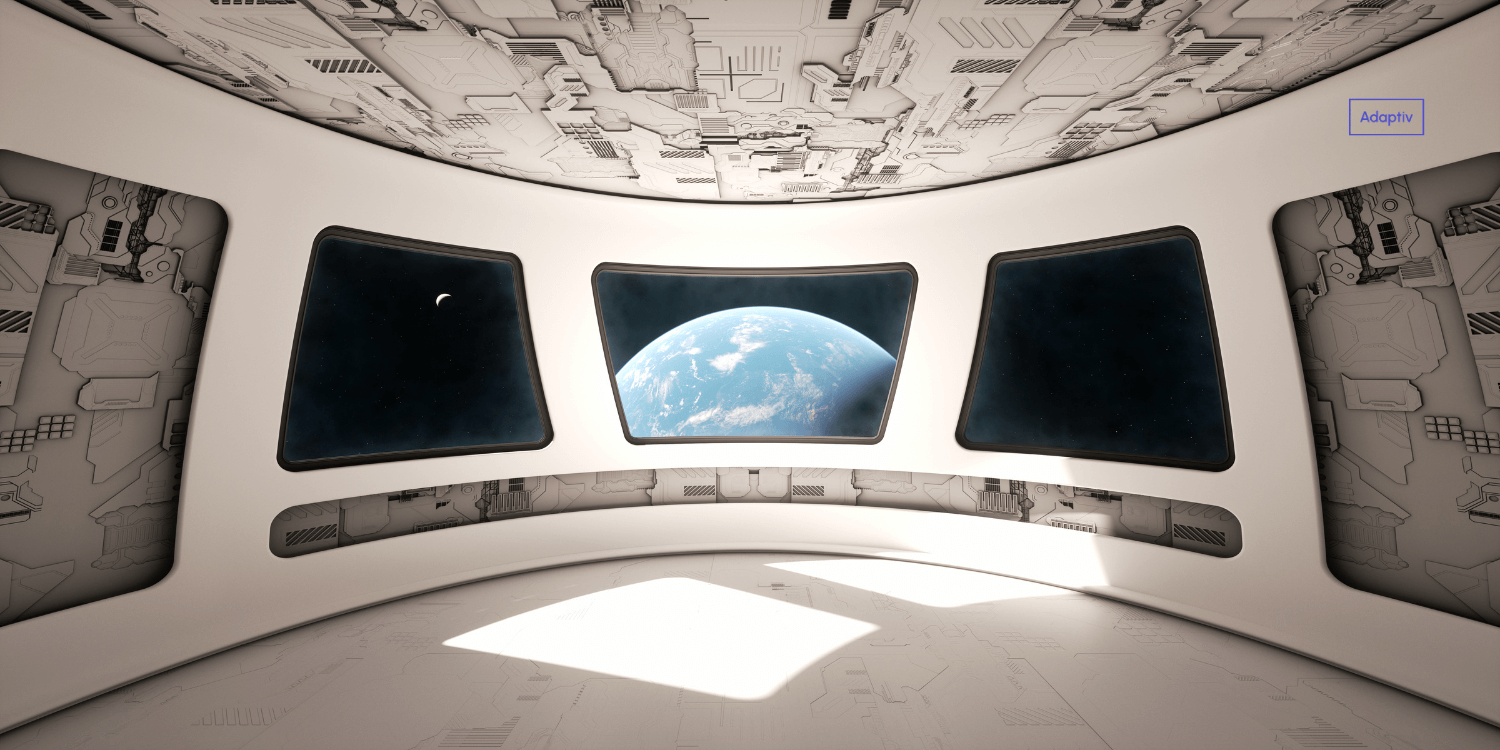Exploring New Horizons With Jobs in Space

The realm of space exploration has long captivated the human imagination, and today, it presents unprecedented opportunities for employment in various fields. According to one report, the space economy will be worth 1 trillion USD by 2040, creating jobs that go beyond space tourism for those who can afford the transatlantic flight!
As the space industry continues to expand, numerous emerging jobs are appearing on the horizon. A California-based startup recently launched a project to develop pharmaceutical drugs in outer space, fueling the conversation on the space industry and emerging jobs in this new economy. These exciting new jobs will offer aspiring professionals a chance to contribute to humanity's exploration of the cosmos while pushing the boundaries of knowledge. Let's take a look at some of the most promising and in-demand career paths in the realm of space, along with the skills required to excel in each role.
🧑🚀 Astrobiologist:
Astrobiology, the study of life beyond Earth, is a rapidly growing field. Astrobiologists investigate the possibility of extraterrestrial life, study the origins of life, and analyze the habitability of celestial bodies. To excel in this role, a solid background in biology, chemistry, and astronomy is necessary. Strong research and analytical skills, as well as the ability to work collaboratively in multidisciplinary teams, are essential for conducting experiments and analyzing data.
🚀 Space Data Analyst:
Space missions generate vast amounts of data, requiring skilled professionals to make sense of the information. Space data analysts process and interpret data collected from satellites, telescopes, and other space-based instruments. Proficiency in programming languages like Python, data analysis techniques, and statistical modeling is crucial. Moreover, a deep understanding of astrophysics or planetary science enables the extraction of meaningful insights from complex datasets.
🧑🚀 Spacecraft Designer:
The development of spacecraft and satellites demands the expertise of spacecraft designers. These professionals conceptualize, design, and oversee the construction of spacecraft and their subsystems. A strong foundation in aerospace engineering, along with knowledge of materials, propulsion systems, and control systems, is essential. Proficiency in computer-aided design (CAD) software and the ability to solve complex engineering problems are vital skills for success in this role.
🚀 Space Mining Engineer:
The prospect of mining resources from celestial bodies, such as the Moon or asteroids, is becoming increasingly feasible. Space mining engineers will be tasked with developing technologies and strategies for extracting and processing resources in space. A background in mining engineering or geology will be valuable, along with knowledge of robotics, automation, and resource utilization. Problem-solving skills, adaptability, and an understanding of environmental considerations in space mining will also be essential.
🧑🚀 Space Traffic Controller:
With an increasing number of satellites and spacecraft orbiting the Earth, the need for space traffic control will grow. Space traffic controllers monitor and will have to manage space traffic, ensuring the safe and efficient operation of satellites and space vehicles. Strong analytical skills, attention to detail, and the ability to work under pressure will be crucial. Knowledge of orbital mechanics, satellite operations, and international space regulations is necessary to excel in this role.
🚀 Space architect and construction specialist:
As space exploration progresses, the need for infrastructure in space will become increasingly important. Space architects and construction specialists will have to design and construct habitats, research facilities, and other structures for human habitation and scientific purposes. Expertise in architectural design, structural engineering, and knowledge of space environment challenges will be essential. The ability to work with advanced materials and construction techniques, as well as an understanding of sustainable practices in space, will be highly desirable skills.
🧑🚀 Space medic:
Prolonged time in space, away from the familiar physical and cultural spaces that we are used to, will have physical and psychological consequences on those traveling in space. While some medics are already specializing in the practice of medicine on astronauts, and biomedical expert accompany astronauts in space, the field of space medics will explode with the arrival of space travel. They will be responsible for managing medical emergencies, monitoring astronauts' health in micro-gravity environments, and conducting research on the effects of space travel on the human body. In addition to a medical degree, knowledge of aerospace physiology, psychology, and emergency medicine will be crucial. Strong problem-solving skills and the ability to work in a challenging and dynamic environment will also be necessary.
🚀 Space junk recycler:
Did you know that there are more than 128 million pieces of debris smaller than 1 cm, 900,000 pieces from one to ten cm in size and 34,00 pieces of large debris already floating above our Earth? Space junk has the potential of being very dangerous to spacecraft and satellites, and eventually space tourists as well. Space junk recyclers will be tasked with developing technologies and strategies to clean up and recycle defunct satellites, spent rocket stages, and other debris in Earth's orbit. Proficiency in robotics, engineering, and orbital dynamics will be vital. Problem-solving skills, creativity, and the ability to collaborate with international space agencies will also be essential to tackle this pressing issue.
The future of space exploration holds tremendous promise, and the emerging jobs in this field offer a wealth of opportunities for those seeking to be part of this extraordinary journey. From space tourism guides to space mining engineers, these careers require a blend of technical expertise, scientific knowledge, and a passion for exploration. Chat with Ada to get your own tailor-made recipe for a career in space, with astructured pathway to acquire relevant skills and experience. By developing the necessary skills and staying abreast of the latest advancements, you can chart your path in the captivating world of space exploration. So, embrace the unknown and prepare for a career that reaches for the stars. 💫

